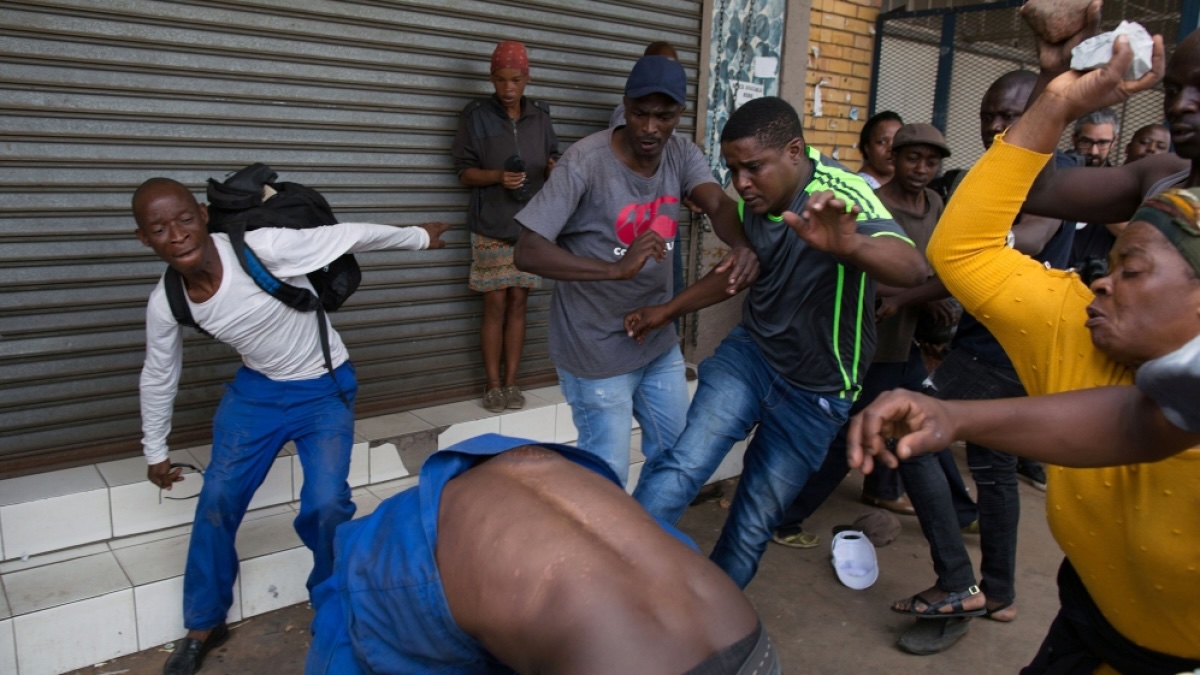What You Need to Know:
The Nigerian High Commission in Pretoria has issued a warning to its national’s residing in South Africa to exercise caution before, during, and after, its Super Eagles play South Africa’s Bafana Bafana in the African Cup of Nations semi final on Wednesday.
The game is to take place at the Ivory Coast’s Stade de la Paix in Bouake.
The High Commission’s statement reads:
“The attention of the Nigeria High Commission Pretoria has been drawn to potentially inflammatory online comments made by a section of South African citizens against Nigerians living in host country, largely influenced by the upcoming 2024 African Cup of Nations (AFCON) semi-final match between the Super Eagles and the Bafana Bafana on Wednesday February 2024.
Most of the comments consist of veiled threats against “Nigerians cooking jollof rice” before the match, and “showing pepper to Nigerians if the Bafana Bafana lose to the Super Eagles”, among others.
In this regard, the High Commission hereby advises the Nigerian community to be watchful of their utterances, be mindful of where they choose to watch the match especially in public places, and refrain from engaging in loud, riotous or provocative celebrations should the Super Eagles win the match.
Additionally, Nigerians should maintain the good conduct they are known for, and be law abiding before, during and after the match. Should any provocations arise, they should not be reciprocated but reported to the appropriate authorities.”
There are over 30,000 Nigerian migrants living in the country, per United Nations data.
The Details:
Despite South Africa’s long and violent history of xenophobic attacks on foreigners, the Department of International Relations and Cooperation issued its own statement on the issue, labeling the High Commission’s concerns a ‘false alarm.’
The statement released today titled: ‘False Alarm About the Safety of Nigerians in South Africa’, reads:
“The Department of International Relations and Cooperation (DIRCO) has learned about an unfortunate advisory issued by the High Commission of the Federal Republic of Nigeria in Pretoria.
The advisory is regrettable, because it seems to create alarm and unnecessary tension between the citizens of South Africa and Nigerians living in or visiting South Africa.
The South African national soccer team, Bafana Bafana, has played against their Nigerian counterparts, the Super Eagles, on many occasions, and there has been no history of soccer hooliganism among South Africans associated with the outcome of such encounters.
We are confident that the sports-loving nation of South Africa poses no threat to Nigerian citizens, and we do not agree with the apprehension expressed by the High Commission.
As we have done in the past with similar alarming advisories, we call on the diplomatic representatives to approach DIRCO to address any concerns about diplomatic matters.”
A History of Xenophobia:
Between 2016 and 2019, 127 Nigerians were killed in xenophobic attacks in South Africa, triggering the repatriation of 600 nationals to Lagos in late 2019.
The repatriations came after a wave of violence swept South Africa, with over 1,000 foreign-owned shops looted and burnt, with Nigerians, Congolese, Zimbabweans and Ethiopians targeted.

The attacks stem from rhetoric promulgated by various South African community organisations and political parties that foreigners are to blame for the country’s economic woes and lack of jobs, despite many foreigners running their own tuck shops or informal food stops.
The rhetoric continues to have real-word consequences despite the nation’s Black Economic Empowerment (BEE) policy, which requires businesses with over 50 employees to meet BEE allocation quotas of 68% black workers, 8% coloured workers, 2% indian workers and 8% white workers.
Additionally, legal questions have arised over how businesses are to allocate the remaining 14%, which is not covered in the policy.


